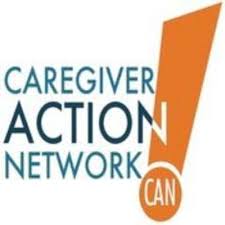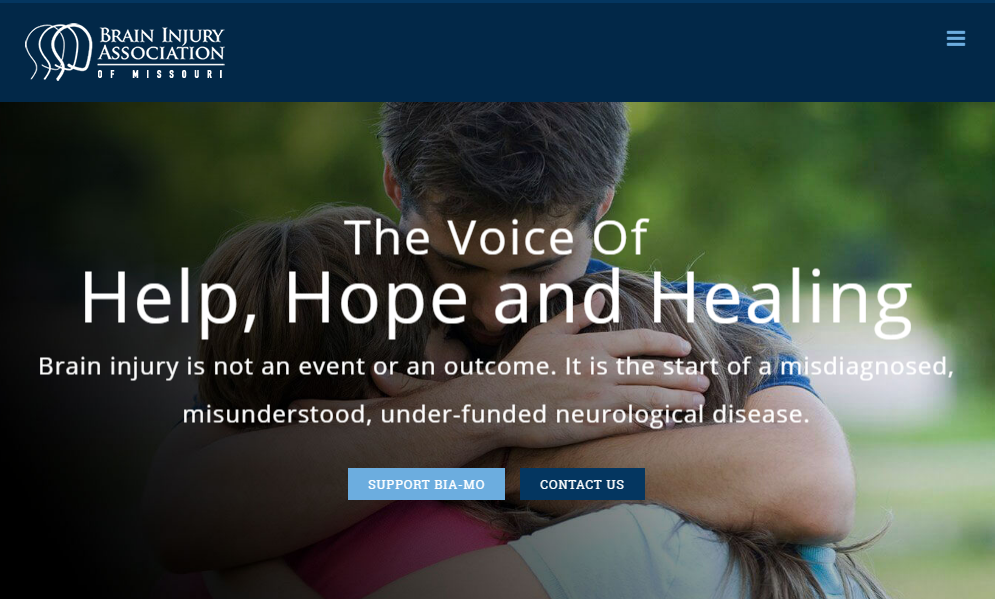Disabled With No Place To Go
Chattanooga Times Free Press by Dave Flessner and Pam Sohn
Disabling maze
In Tennessee, initial disability claims are rejected one-third more often than in the rest of the country, according to fiscal 2007 records, and fewer than one of every four people who apply are accepted on the first request. Even those approved must wait an average of three months for the OK, according to state officials.
Those whose applications are turned down by Disability Determination Services can appeal to a federal administrative law judge. Those requests usually take more than a year to resolve.
And if the maze of applying for disability is contributing to homelessness, the process of receiving help only becomes more difficult for those who find themselves on the street, advocates say.
"Probably half or more of the people we see have disabilities that significantly interfere with whether they are able to get what they need," said Linda Katzman, health programs supervisor of the Chattanooga Homeless Health Care Clinic.
Darrell Lee Carter climbs out of a trash bin after searching for scrap metal to sell.
Clinic records show only 97 of the clinic's more than 2,000 patients treated from January until June were approved to receive disability assistance.
Ron Fender, a case worker for homeless people at the Chattanooga Community Kitchen, said Mr. Carter is a perfect example. On Monday, nearly a year after Mr. Fender began helping Mr. Carter apply for disability benefits in Chattanooga, the two men will visit a local physician who will assess Mr. Carter.
"Hopefully, Darrell will be able to soon qualify again for disability and be given some better choices for his life," said Mr. Fender, who is an Episcopalian monk in the Brotherhood of St. Gregory, a monastic order of the Episcopal Church.
"Darrell is profoundly disabled, as his records clearly show," he added. "These people often just fall between the cracks."
Mr. Fender said the disconnect begins even with the application forms.
"They want to know about a lifestyle where people have homes like when you get up, when you eat, what household chores you are able to do," he said. "They don't know how to access someone who doesn't have their own home or bed, so they tend to disregard it all. Disability examiners need a hard and fast education on homelessness to know how to evaluate many people."
Often homeless applicants give up, Mr. Fender said, and sometimes the approved disability payments come too late, as was the case for former rodeo cowboy Mickey Daniels, who was diagnosed with liver cancer while a patient at Erlanger. The hospital helped Mr. Daniels file for disability benefits, but a year after being released from Erlanger he died homeless in 2004.
"We got the letter that his disability payments were approved about a week after his funeral," Mr. Fender said.
State workload
Andrea Cooper, assistant commissioner for the Tennessee Department of Human Services' Division of Rehabilitation Services, said the state receives about 400 applications a day, or about 2,000 each week, from people wanting Social Security disability payments. In fiscal 2007, 101,134 cases were processed by the state disability services office and of those, 23.2% were accepted based upon the initial application, according to state records.
For the nation as a whole, the average initial acceptance rate was 34.6% last year, according to Social Security figures.
Ms. Cooper said Tennessee is hurt by the below-average earnings and education of workers and its greater share of people with unhealthy habits.
"We have a higher level of smokers, less active population and one of the highest levels of obesity," she said. "That tends to encourage more people to file for disability thinking that, because of their poor health, they are unable to work. But they don't understand the criteria."
A bigger share of Southerners file for Social Security disability benefits, officials said. Among the 2 million people who filed for disability benefits nationwide, one-fourth were from the Southeast.
But across the country, disability claims are growing as the number and share of the population ages, Mr. Allsup said.
"The problem has worsened terribly in recent years as more baby boomers get older and as Congress has cut the budget for Social Security," Mr. Allsup said. "At the same time there has been a cut in the field workers that handle disability claims, there has simultaneously been a tremendous increase in applications. It's out of control."
The average caseload is 144 per worker. Tennessee's disability determination office has 529 staff, plus 200 examiners, in Nashville to handle claims, Ms. Cooper said.
"They just don't have the staff or budget to handle this exploding population," Mr. Allsup said. "What results is people with severe disabilities having to wait terrible lengths of time."
At the hearing level, Chattanooga disability applicants seeking a hearing are waiting, on average, 469 days, Mr. Allsup reported.
"Too many people are not getting paid for the (Social Security) insurance they have paid for when they were working," he said.
BY THE NUMBERS
- 110,134 - Claims for disability received by Tennessee Disability Determination Services
- 23.2 - Percent of claim initially accepted by DDS
- 53.5 - Percent of disability applicants sent for a consultative evaluation by a physician
- 469 - Average number of days Chattanooga applicants seeking federal Social Security review wait for hearing and decision
Sources: Tennessee Department of Disability Determination Services, Allsup data for hearing processing time, February 2008.
What is a disability?
The Social Security definition of disability is "the inability to engage in any substantial gainful activity or work by reason of any medically determinable physical or mental impairments which could be expected to result in death or which has lasted or expected to last for a continuous period of not less than 12 months."
What share of people get disability benefits?
In Tennessee, 7.3% of the population gets Social Security disability benefits, compared with a national average of 5.4%.
What help does it provide?
The Social Security Administration oversees two programs designed to provide financial support to people with disabilities.
Supplemental Security Income, sometimes called SSI, is a needs-based program that provides a maximum income of $637 a month to people with disabilities who lack stable employment histories.
Social Security Disability Income, often called SSDI, is related to earnings history and the amount an individual has paid into the Social Security system.
Most disability recipients qualify for government health insurance under Medicaid and Medicare. People who qualify also are more likely than others to obtain available subsidized or supportive housing.
To qualify for disability benefits from the Social Security Administration, an applicant must show that he or she cannot work in the next 12 months.
With more applications, the average time for Tennessee's disability determination services to decide on an initial application was 90 days last year, or five days longer than the U.S. average.
Tennessee does boast a slightly higher accuracy rate for handling claims, according to the Social Security Administration. Based upon its review of the way state agencies handle initial claims, the administration estimates Tennessee's disability determination services makes the right decision 97.1% of the time, which exceeds the national average of 96.1%.
Advocate help
In the past three years, a federal initiative called SOAR (SSI/SSDI Outreach, Access, and Recovery) has improved access to disability benefits for homeless people, according to John Lozier, executive director of the Nashville-based National Health Care for the Homeless Council. Two Volunteer State cities have participated: Nashville and, most recently, Chattanooga.
"We're making an effort with training and coordination to streamline the process," Mr. Lozier said.
For homeless applicants, only 10% to 15% traditionally have been determined disabled upon the initial application, compared with 37% of all applicants nationwide, according to the Homeless Council's Web site. Meanwhile, more than 60 percent of homeless applicants' initial denials have been overturned following a substantial appeals process averaging two to three years.
"This lengthy delay only further compromises the health and stability of applicants," states a mobilization letter from the Nashville SOAR group, calling for an additional $5 million in funding for the program.
But preliminary data in 11 SOAR test states, including Tennessee, where special training encouraged streamlined efforts for the homeless, found a turnaround: 62% of applications were approved and average approval time was cut to 87 days.
Four of Tennessee's 91 test cases were in Chattanooga. All four were approved quickly, according to data posted on the Homeless Council's Web site in late July. The other 87 cases were in Nashville, where 85 were approved on the first try.
Other homeless groups try to provide their own help with those seeking disability clients.
Aided by a grant from the Community Foundation, Episcopal Metropolitan Ministry of Chattanooga started a program this year to help low-income persons sign up for government benefits, including food stamps, Medicaid, Medicare and Social Security benefits.
Gene Hunt, a certified life underwriter who sells insurance, investment and financial assistance in his private business, also volunteers at the Metropolitan Ministry to help people process their applications for disability benefits.
"The state does a good job reviewing applications, but it can be a complex process, especially for those who are illiterate or have trouble filling our forms," Mr. Hunt said.
Rebecca Whelchel, executive director for Episcopal Metropolitan Ministry, said her agency is handling a record number of applications for assistance of all types this year.
"Higher utility, gas and food prices are creating a lot more problems for many poor people," she said. "It's especially difficult for persons with limited disabilities trying to get around or just understand how to navigate their way through the process to get the benefits they may be qualified to receive."
Mr. Fender said help is needed for what he termed "a huge problem."
"A lot of our people get disability, but many of them have been down a long road to get it," he said. "The good thing is when these people are able to get their disability, they are usually able to get their own place and they have a life."
Permission granted by Chattanooga Times Free Press.
Allsup
Related Articles

Uncategorized
Helping Family Caregivers With What They Need to Know

Uncategorized
Understanding MS and Disability Benefits

Uncategorized
BIA-MO Gets Real about Brain Injury Awareness

